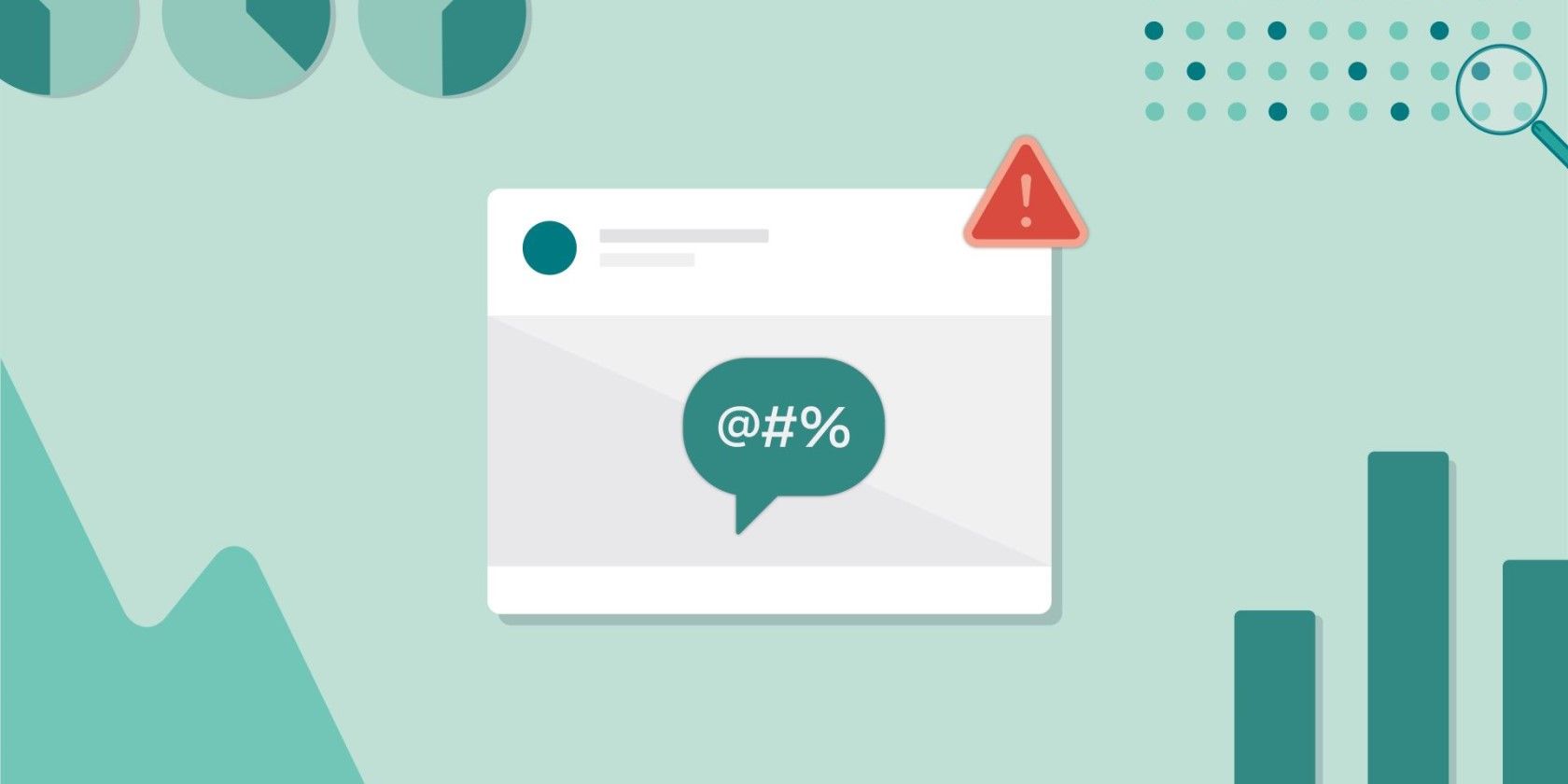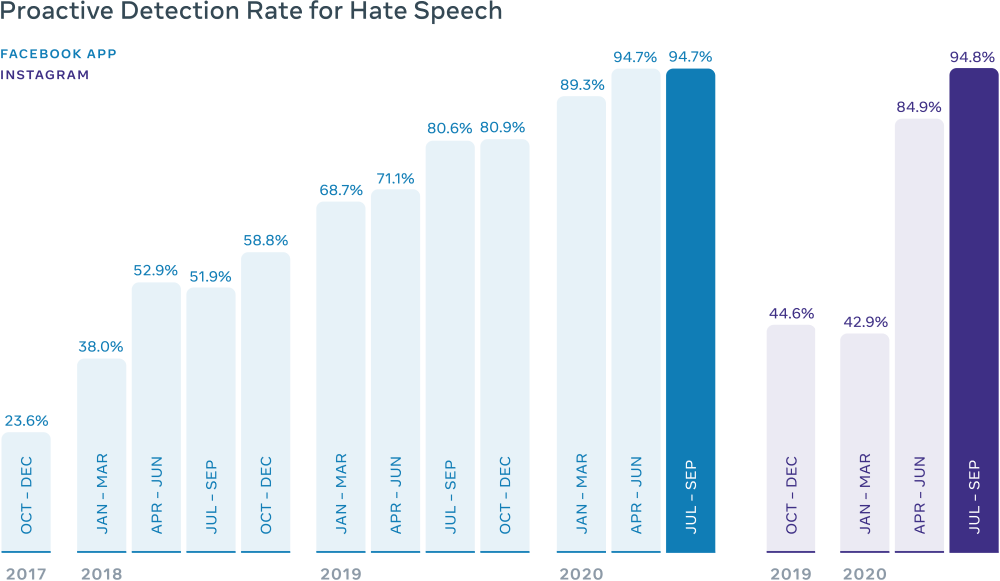Facebook's sophisticated artificial intelligence (AI) technology has allowed the platform to remove more hate speech than ever. Its hate-detecting AI has managed to catch 95 percent of hateful content in the third quarter of 2020.
The Role of AI in the War Against Hate Speech
Facebook's latest Community Standards Enforcement Report revealed the major role that AI is playing in combatting hate speech on the platform.
Over the third quarter of 2020, Facebook managed to "proactively detect" around 95 percent of hate speech. In total, Facebook removed 22.1 million pieces of hateful content on Facebook, and 6.5 million pieces on Instagram.
This is a major increase compared to the last quarter of 2017, a period when Facebook proactively detected only 24 percent of hate speech across Facebook and Instagram.
Although the platform utilizes "a combination of user reports and technology" to remove hateful content, the huge jump has been largely credited to Facebook's advanced AI.
Not only does its AI help detect and take action on hateful content before it even gets reported, but Facebook also uses it to sort out more complicated content that needs to be reviewed. Facebook further explained the role of AI, stating:
Whether content is proactively detected or reported by users, we often use AI to take action on the straightforward cases and prioritize the more nuanced cases, where context needs to be considered, for our reviewers.
Additionally, Facebook also noticed an increase in the prevalence of hate speech during the third quarter. According to Facebook, it determines "hate speech prevalence by selecting a sample of content seen on Facebook and then labeling how much of it violates our hate speech policies."
The report showed that of every 10,000 views of content of the platform, 10 to 11 views contained hate speech.
How Does Facebook Define Hate Speech?
If you're wondering how exactly Facebook determines what is and isn't hate speech, the platform continually adjusts its definition. In August 2020, Facebook updated its hate speech policies to include anti-Semitic conspiracy theories and blackface. Facebook notes that "as speech continues to evolve over time, we continue to revise our policies to reflect changing social trends."
Right now, Facebook defines hate speech "as anything that directly attacks people based on protected characteristics, including race, ethnicity, national origin, religious affiliation, sexual orientation, sex, gender, gender identity or serious disability or disease."
What to Expect Going Forward
Throughout 2020, Facebook has faced a number of challenges in regards to controversial content.
At the beginning of the year, the platform had to fight against misinformation about the COVID-19 pandemic. Later on, it also had to deal with misleading information surrounding the US presidential election. This lead to the platform slapping labels on certain posts, or removing them altogether.
As Facebook's AI continues to evolve we can only expect more takedowns in the future.


